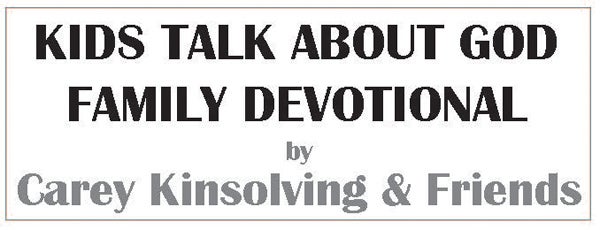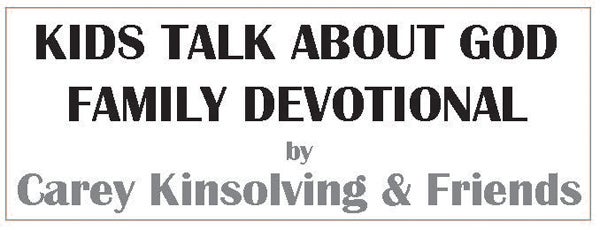What is your conscience?
Published 3:28 pm Thursday, June 30, 2022
|
Getting your Trinity Audio player ready...
|
“Conscience is the still, small voice that makes you feel even smaller,” wrote James Sanaker.
Or, as my friend Lucas, age 7, says: “It’s something in your head. It helps you think.”
A description of a working conscience that every mom will appreciate comes from Braxton, 5, “My mama told me to not do it, and I didn’t do it.”
It sounds like Mom has left an impression on your conscience, Braxton, and rightly so. Parents have an incredible responsibility to form their children’s consciences by teaching them right from wrong.
“Your conscience works kinda like a collar that shocks a dog when it goes too far,” says Doran, 12.
If that’s the picture, some people need to recharge the battery on their conscience collars. The signal has become too weak.
“My conscience works!” says Sarah, 12. “If you are deciding to hang out with the wrong crowd and do drugs, it tells you ‘no.’ Or it could be a small thing like brushing your teeth.”
People abuse drugs and alcohol because they’re trying to quiet their consciences. Some people are reduced to a zombie-like existence by their attempts to run from their consciences.
When the Apostle Paul was on trial for being a Christian, he said, “I myself always strive to have a conscience without offense toward God and men” (Acts 24:16).
Although a clear conscience before God and people won’t exclude you from trials, it will allow you to live with inner freedom apart from guilt. “There is no pillow so soft as a clear conscience,” says a French proverb.
The Bible says if you’re not sure whether something is wrong, it’s a sin to do it — even if the thing itself isn’t actually wrong (Romans 14:20-23).
“In the Bible, three people were told to bow down to a statue, or they were going to be thrown into a furnace. They had to use their conscience to tell them what to do,” says Stefanie, 9.
Shadrach, Meshach and Abed-Nego didn’t call a prayer meeting to ask God if it was his will for them to obey King Nebuchadnezzar’s command to worship a golden idol. Their consciences were informed by the first and second of the Ten Commandments, which forbid the worship of other gods and the making of images.
“Bold” is the only word to describe their collective response to the king’s death threat: “We do not serve your gods, nor will we worship the gold image which you have set up” (Daniel 3:18). “Astonished” is the word to describe the king’s response when he saw the three walking in the fiery furnace unharmed along with a fourth he described as being “like the Son of God.”
The same Son of God who delivered the three from the fiery furnace can also deliver us from a defiled conscience. What the sacrifice of animals could never do, Jesus did once for all when he offered himself as a sacrifice for our sins (Hebrews 9:13-14).
Animal sacrifices could never cleanse the consciences of those seeking forgiveness. Neither can great humanitarian acts. Only those who place their faith in Jesus and his sacrifice experience the joy of sins forgiven and a good conscience. He is the Lamb of God who takes away the sin of the world.
Think about this: God wants us to live with a clear conscience, free from guilt.
Memorize this truth: “I myself always strive to have a conscience without offense toward God and men” (Acts 24:16).
Ask this question: Is your conscience free from guilt before God and people?
(Kids Talk About God is designed for families to study the Bible together. Research shows that parents who study the Bible with their children give their character, faith and spiritual life a powerful boost.)



